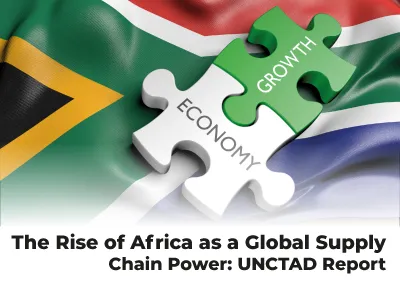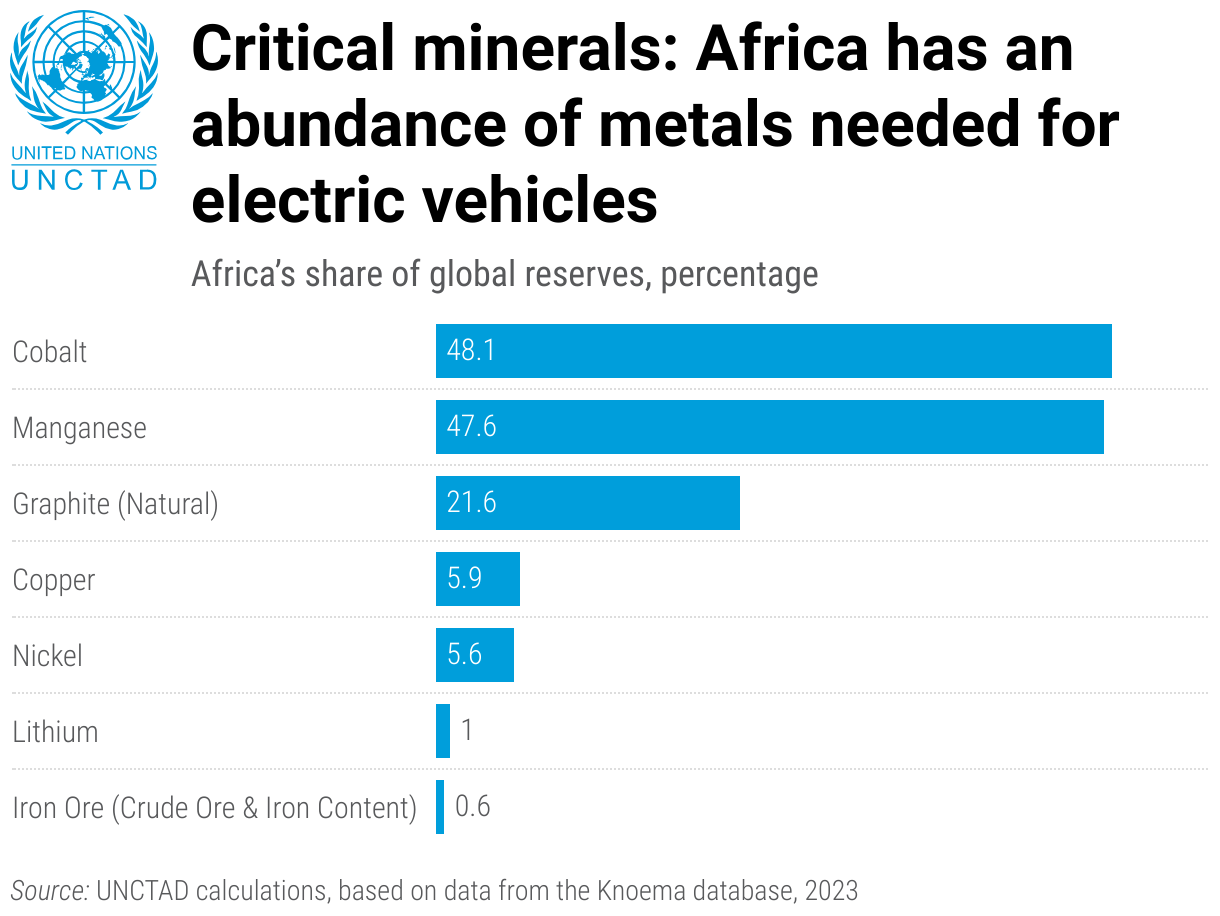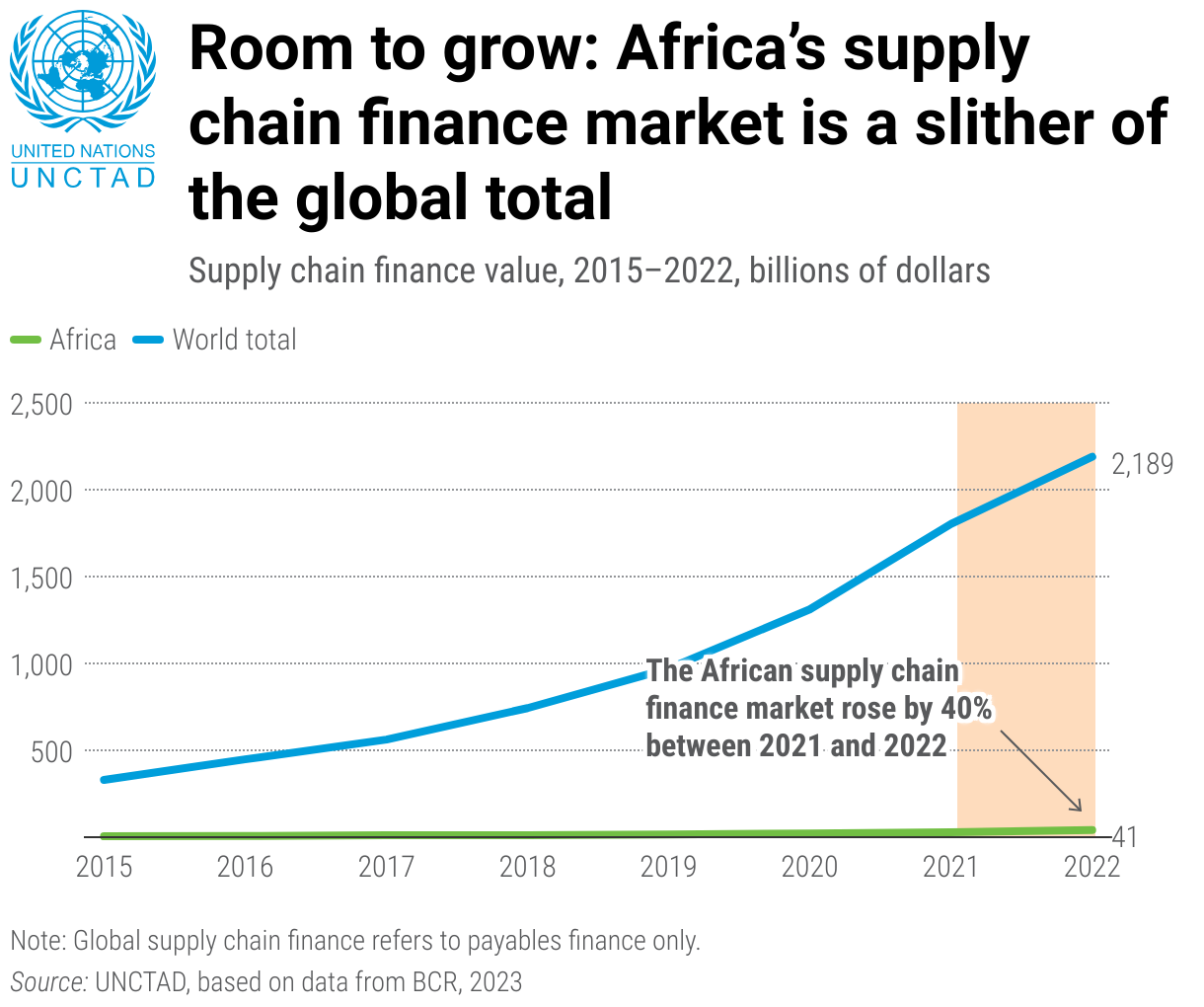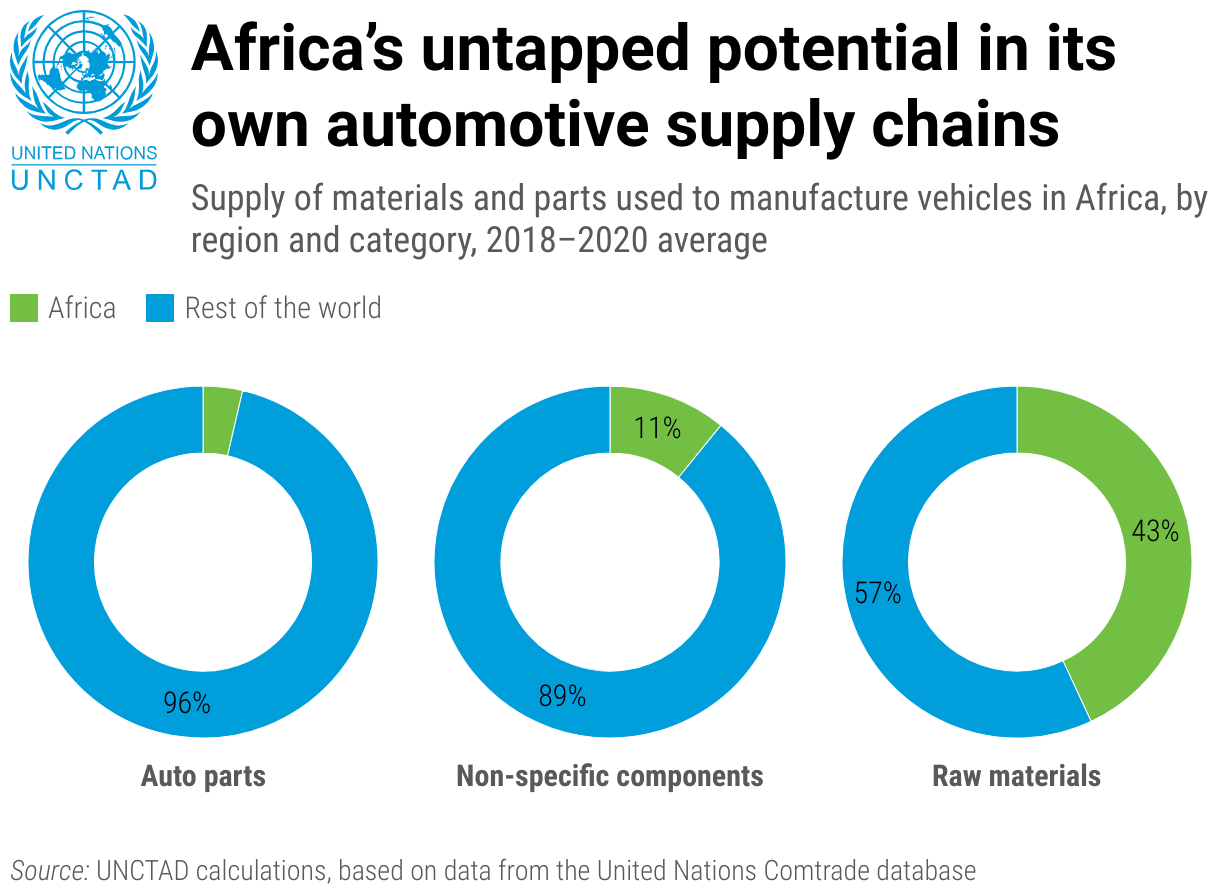
With its abundant resources and growing consumer market, Africa can also be a leading manufacturing location for technology-intensive industries and an essential link to global supply chains.
According to the African Economy Development Report 2023, it was launched by the United Nations Conference on Trade and Development (UNCTAD), published today in Nairobi. It was stated that the African economy could become an essential participant in global supply chains by utilizing the vast material resources and growing consumer markets needed by high-tech sectors.
Rebeca Grynspan, UNCTAD Secretary-General, stated that as the diversification efforts continue, it is time for Africa to scoop up the global collection chain. She also expressed that this is an essential opportunity for the continent of the state to strengthen its emerging industries, support the economy and create job growth for millions of people.
The abundance of critical minerals and metals, especially aluminum, cobalt, copper, lithium, and manganese, are essential components of Africa's technology-intensive industries the latest turbulence caused by trade turbulence, geopolitical events and economic uncertainties force producers and production sites to diversify. However, Africa also offers many advantages, such as shorter and simpler access to primary inputs, a dynamic and adaptable technology-conscious workforce, and increased demand for higher-quality goods and services.
Strengthening African Supply Chains is Critical to the Growth of the Region
The report highlights that creating an environment conducive to technology-intensive industries will help increase wages, currently set at $220 per month across the continent, compared to the $668 paid on average in the United States.
Proper integration into global supply chains will diversify African economies and increase their resilience to significant future challenges. Extending energy supply chains to Africa is a significant opportunity to accelerate climate action. The continent's vast and renewable energy potential, especially in solar energy, will help reduce production costs and dependence on fossil fuel-based energy sources. Therefore, more investment in renewable energy is needed to close Africa's significant investment gap and overcome other barriers to producing solar panels on the continent. For example, in 2022, the Democratic Republic of Congo is Africa's largest copper producer, with 1.8 million metric tons. Thus, beyond exploration and extraction, the country is a potential target for the electric vehicle industry in terms of refining metal products.
Unlock Africa's Supply Chain Opportunities: Invest in Infrastructure, Technology, and Finance
Africa needs a lot of infrastructure investments to strengthen its position as a supply chain destination. Seventeen African countries, including Angola, Botswana, Ghana, and South Africa, have already implemented local content regulations to support the growth of local supply chains, encourage technology transfer, create jobs, and add value within their borders. In addition, African countries should provide better mining contracts and exploration licenses for metals used in high-tech products and supply chains. Thus, it will strengthen local industries by helping local firms design, manufacture, and supply the necessary components.
Mineral Supply Chain Financing for Small Businesses
The report highlights that African small and medium-sized businesses need more supply chain financing, closing the payment time gap between buyers and sellers, improving access to working capital, and reducing financial pressure. According to the report, the value of the African supply chain finance market increased by 40 percent between 2021 and 2022, reaching $41 billion. However, more is still needed.
UNCTAD underlines the need for debt relief for African countries to invest and provide fiscal space to strengthen their supply chains. Because African countries, on average, pay four times more than the USA and eight times more than European economies.
Click the View
 Back
Back







